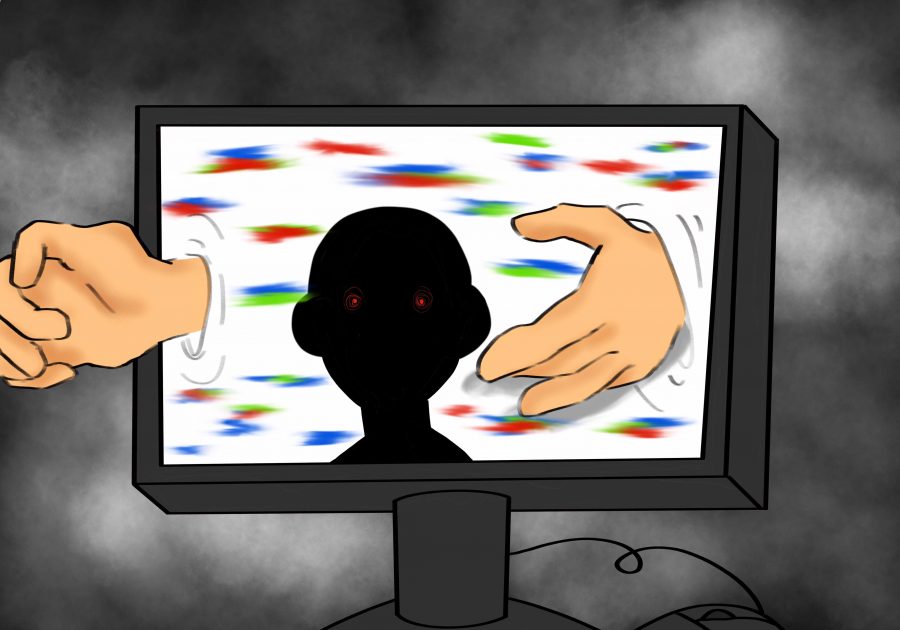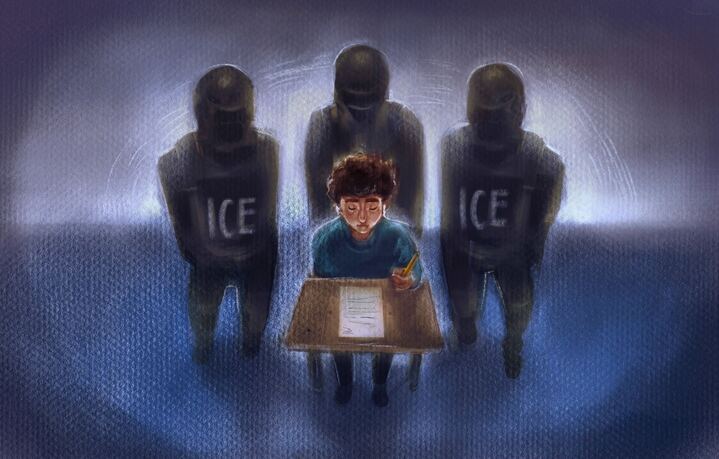During my 2014 summer trip to South Korea, I was fascinated by the bright beams of light that illuminated Seoul at night.
However, as I passed by the countless stores that lined up along the bustling streets, I kept noticing businesses that appeared just as often as Starbucks — internet cafes.
On every corner, I saw the windows of these establishments were decorated with rainbow lighting and equipped with top-end gaming computers and monitors. When I asked my cousin — whose family I was staying with — why so many gaming places had popped up throughout the city, she simply responded, “People just love playing games in Korea.”
I grew to understand how deeply rooted the gaming industry had grown in my native country’s culture and how convenient it had become for Korean citizens to play video games during their leisure time.
Five years after my trip, I was reminded of that distinct memory after reading the Oct. 17, 2019, Los Angeles Times article addressing the video game epidemic plaguing South Korea.
Although I knew how competitive the gaming scene in Korea was among many others in the world, I didn’t expect one of its most profitable industries to catch worldwide attention by the World Health Organization [WHO].
The debate whether the “internet gaming disorder,” which was added in the 2022 edition of WHO’s International Classification of Diseases, should be removed from the list caused controversy between gaming companies and mental health professionals.
Video gaming activists believe that it is not reasonable for the organization to categorize all genres of video games as addictive. This leads them to think that the media and organizations are simply attempting to undermine the gaming industry.
However, mental health organizations think otherwise, claiming internet gaming disorder may spread quickly and easily in our current generation’s people. Therefore, it is essential for them to add this disorder within WHO’s list of classified diseases.
I agree that internet gaming is a disorder, and it’s crucial to helping the people who have a genuine addiction to video gaming. However, the media and health organizations may also be blowing this disorder out of proportion.
Personally, I have also had my fair share of internet video gaming as a child. Though I didn’t play games such as “League of Legends” and “World of Warcraft,” I remember playing “Super Mario Bros.” and “Pokémon” several hours a day on my Nintendo DS.
However, I believe that I didn’t (and still don’t) have a gaming disorder because I am able to control how much I play. I have never experienced any withdrawal symptoms such as anxiety or depression if I weren’t able to play video games.
As a teenager, I now prefer the convenience of mobile gaming. I started mobile gaming in seventh grade when I got my first smartphone. I would huddle among my friends and play “Clash Royale” and “Clash of Clans.” I roughly played four hours per day in total.
However, while attending high school, I realized that the amount of time I spent playing mobile games gradually decreased to around three hours a day. The rigorous academic coursework I had to manage made it difficult to find more time throughout the day to play games. I found this to be a consistent pattern throughout my four years in high school.
Though it may seem like I am dedicating a portion of my daily life to video gaming, I don’t consider it an addiction. I maintain my academic coursework and still find time throughout the day to play games on my phone. Rather than playing for four consecutive hours, I spread out the time spent playing mobile games during appropriate situations throughout the day.
Therefore, playing video games in moderation should not be a problem, and media outlets should not make it seem like this disorder is a common issue in today’s society.
As a result of the negative exposure the gaming industry is receiving from health organizations and the media, South Korea’s Ministry of Culture, Sports and Tourism is predicting that the $13 billion industry in the country will face a $9 billion revenue reduction over the next three years and cost around 8,700 jobs.
Though a few extreme cases of the internet gaming disorder have been reported, I don’t think the statistics are strong and valid enough to label the whole gaming industry as harmful, considering that 90 percent of South Koreans plays video games, according to the Times article.
However, it can be said that doing any activity excessively can be both physically and mentally harmful. Therefore, I believe that more research and evidence must be compiled to prove that this disorder is as serious as medical professionals claim it to be.
Rather than assuming every video game can cause addiction, separating the research depending on the genre could provide much more accurate results.
For instance, playing different types of video games, such as First Person Shooter, Real Time Strategy and Massively Multiplayer Online, will vary in their health benefits and drawbacks.
In fact, puzzle and 3D platform games are known to increase the size of the brain’s hippocampus, which is associated with spatial navigation, stress regulation and memory, according to npr.org.
Almost 70 percent of Americans play video games, according to variety.com, but only 0.3 to 1 percent of them may be potentially diagnosed with the internet gaming disorder.
With a lack of research and development on the dire effects of video games, the media and health organizations should not act too soon and potentially destroy a profitable worldwide industry through their influence.
Play video games in moderation before the physical and mental tolls eventually make it game over for you as well.














